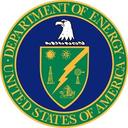RSB members vote to improve organization's principles, criteria

November 8, 2016
BY Ron Kotrba
Advertisement
Advertisement
Related Stories
Kansas State University biochemists have used synthetic biology techniques to significantly increase the amount of acetyl-triacylglycerols in pennycress and camelina. The achievement could benefit biofuel producers.
Soil and Water Outcomes Fund receives support from Chevron Renewable Energy Group for climate-smart agriculture advancement
The Soil and Water Outcomes Fund has begun a pilot project with Chevron REG as part of the larger Midwest Climate-Smart Commodity Program. The initiative represents a notable step toward integrating biofuels into sustainable agriculture outcomes.
The U.S. DOE has announced $52 million in funding for six university and industry projects to advance the production of low carbon intensity, purpose-grown energy crops critical to accelerating a clean energy bioeconomy.
CoBank predicts that U.S. production of renewable diesel and associated fuels will experience a modest boost in 2025 but cautions that policy uncertainty looms over administration of the RFS program, SREs and the impact of potential tariffs.
Feedstock State of Affairs
Surging biomass-based diesel feedstock demand has led to a boom in used cooking oil imports, and when combined with current policy mechanisms, U.S. soybean oil is at a disadvantage.





